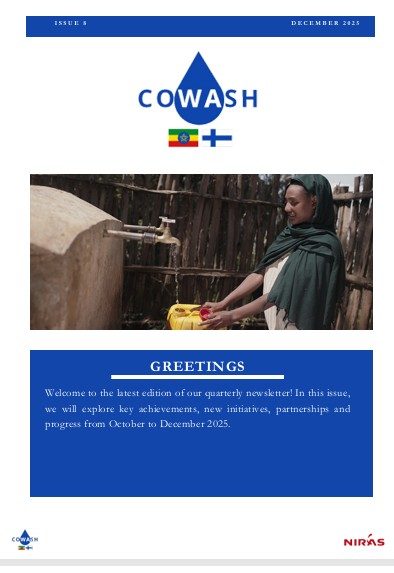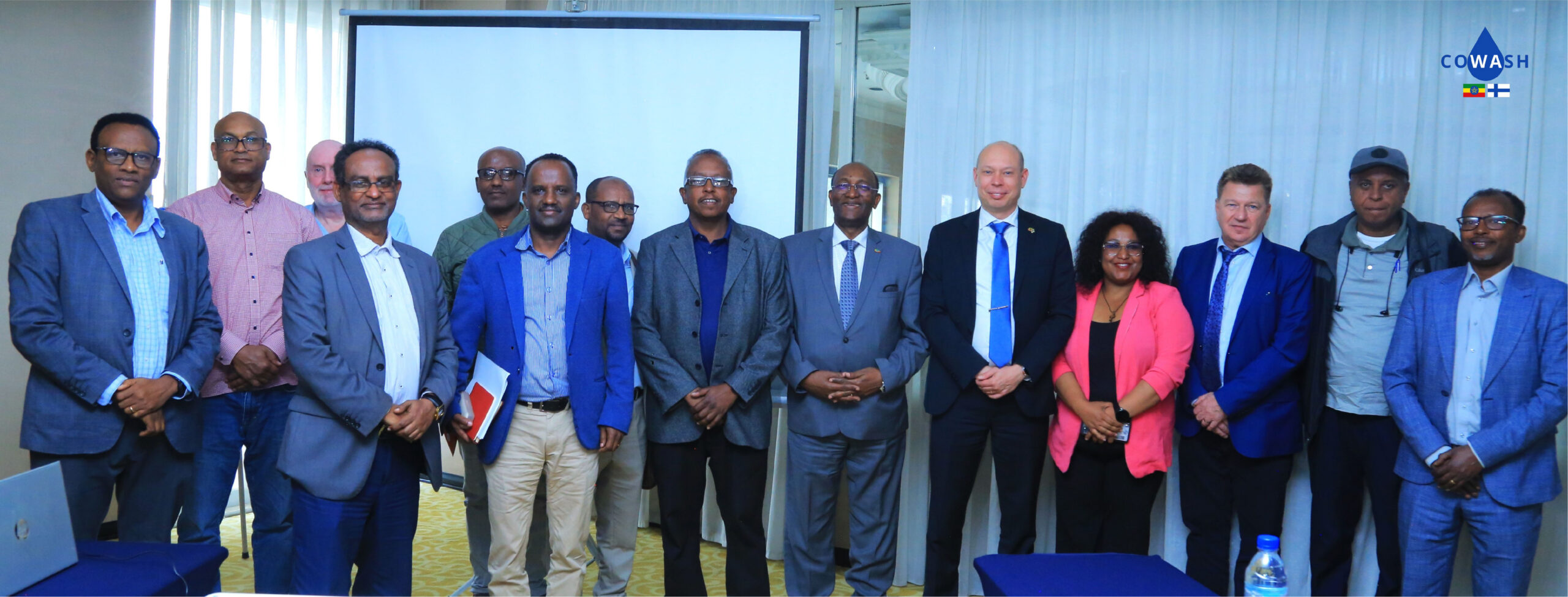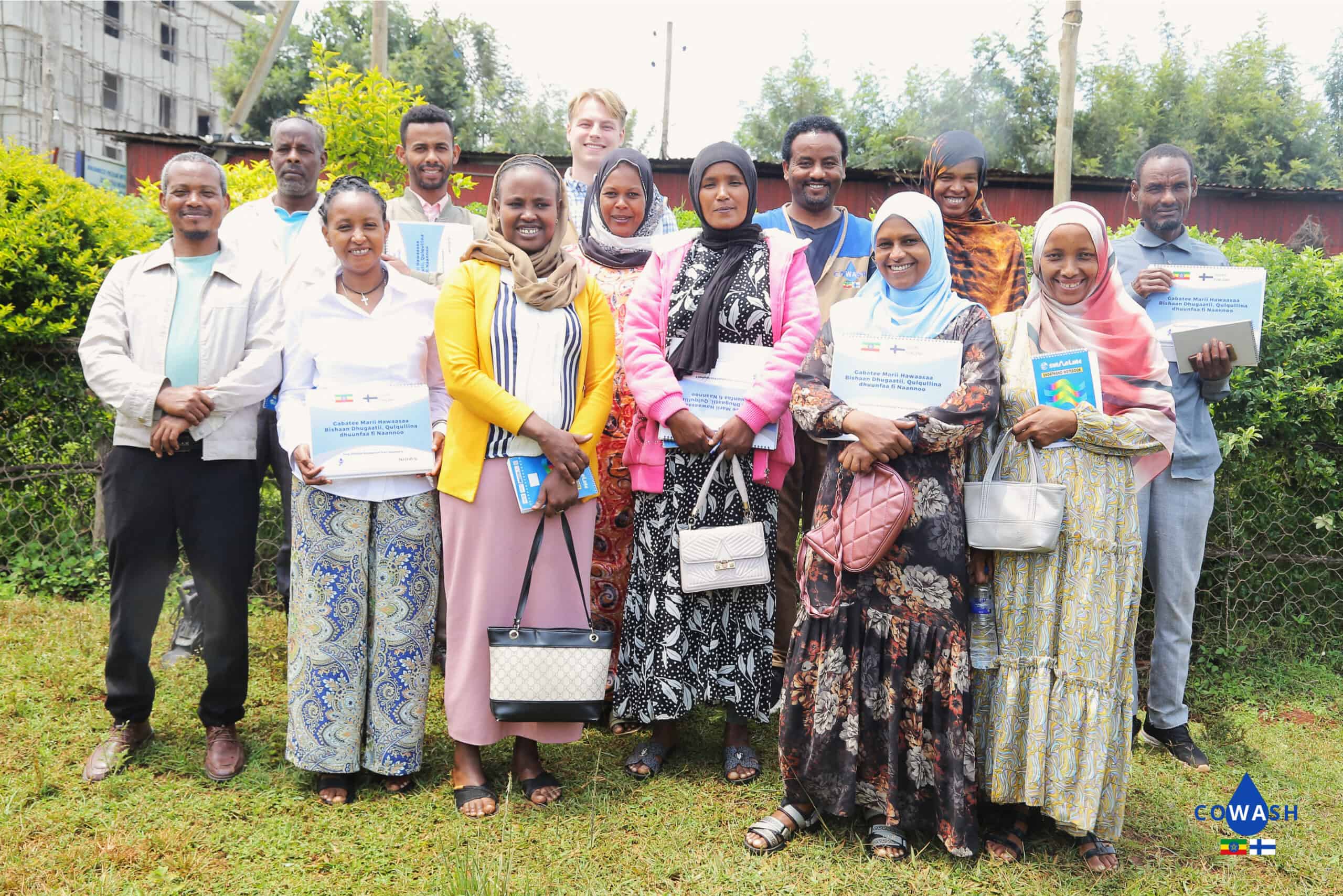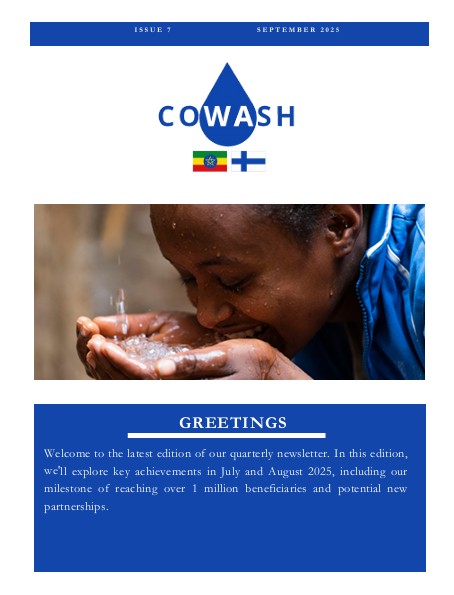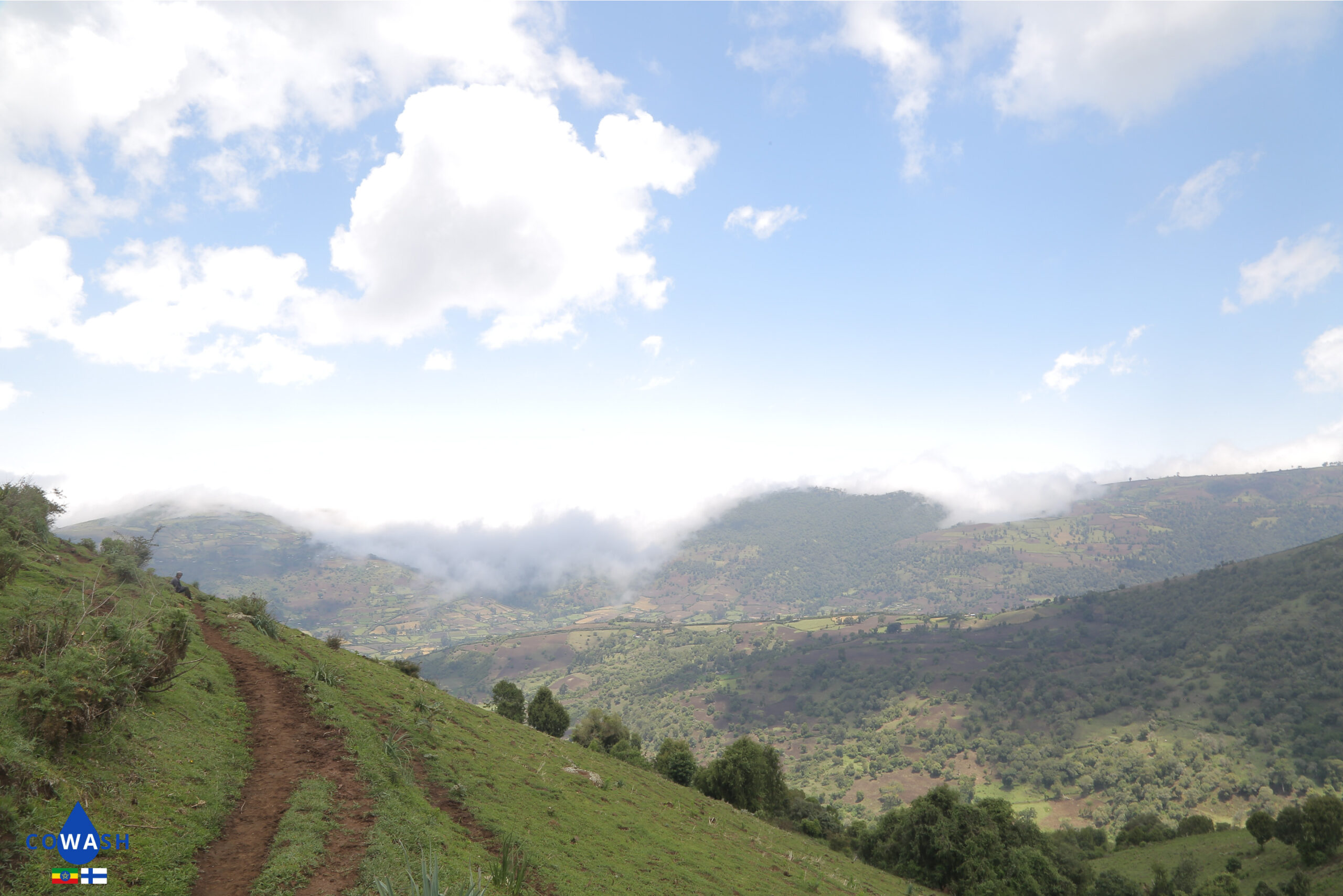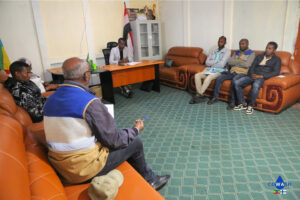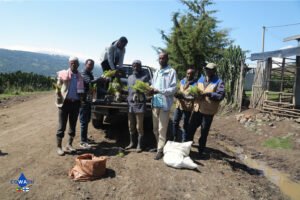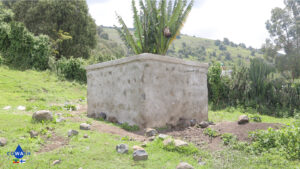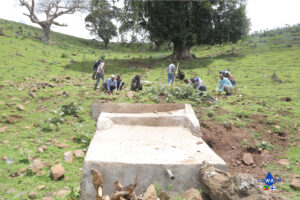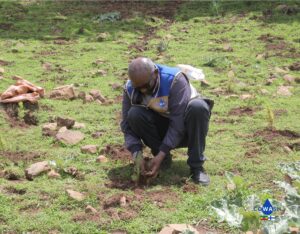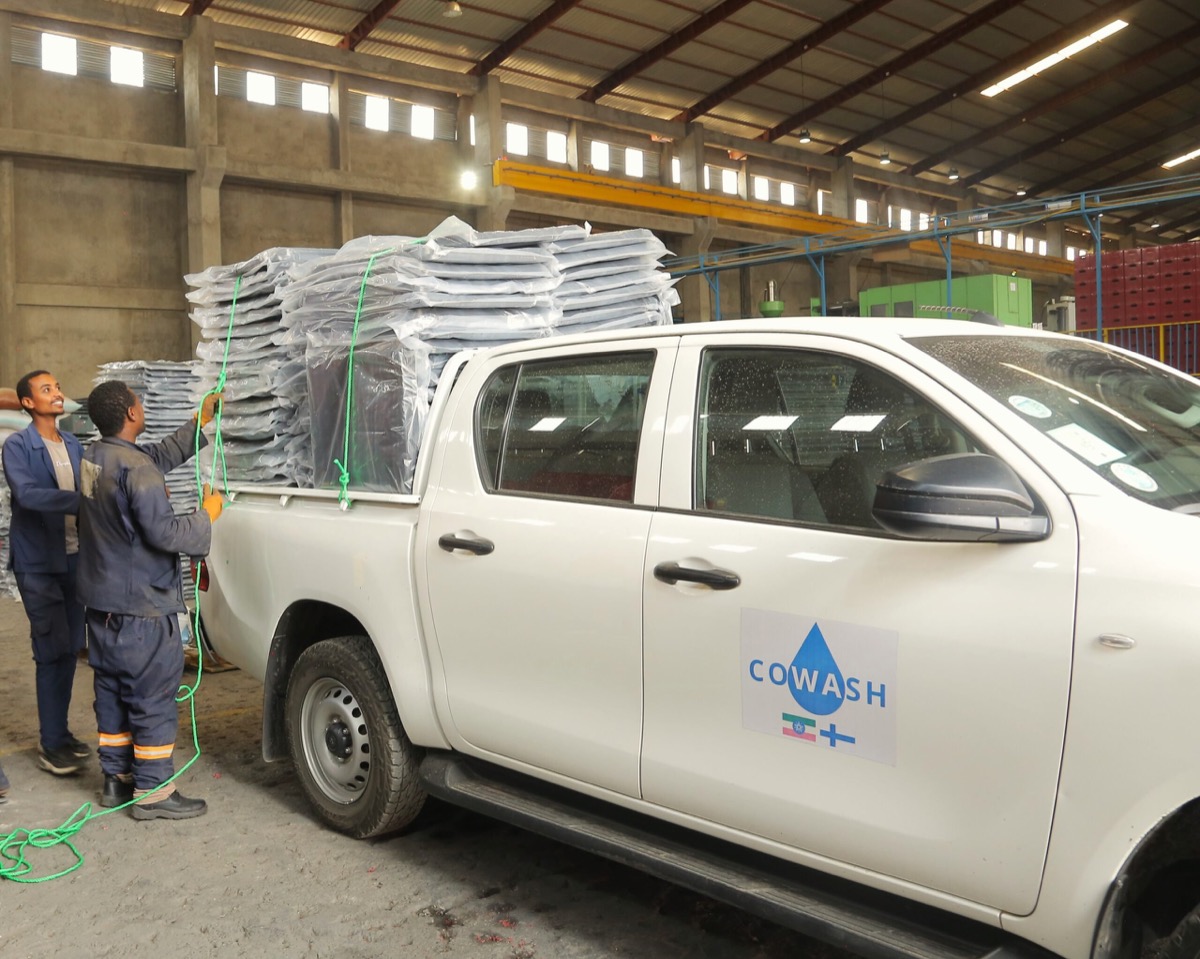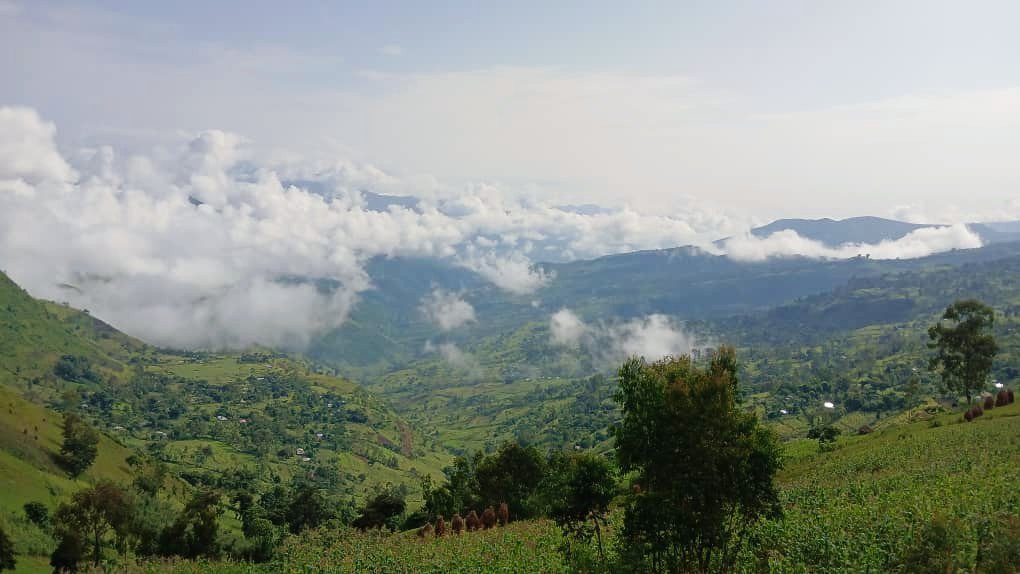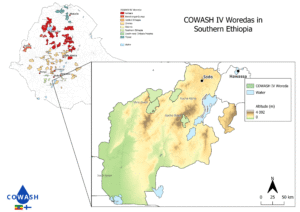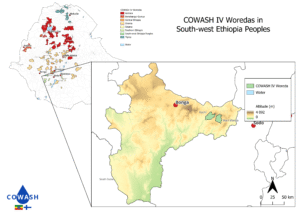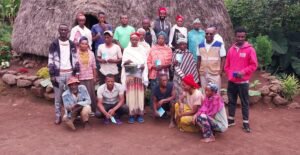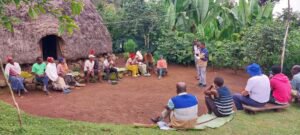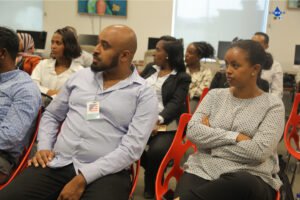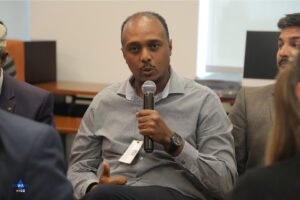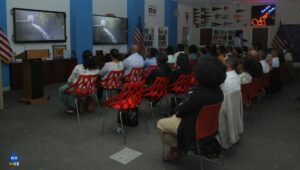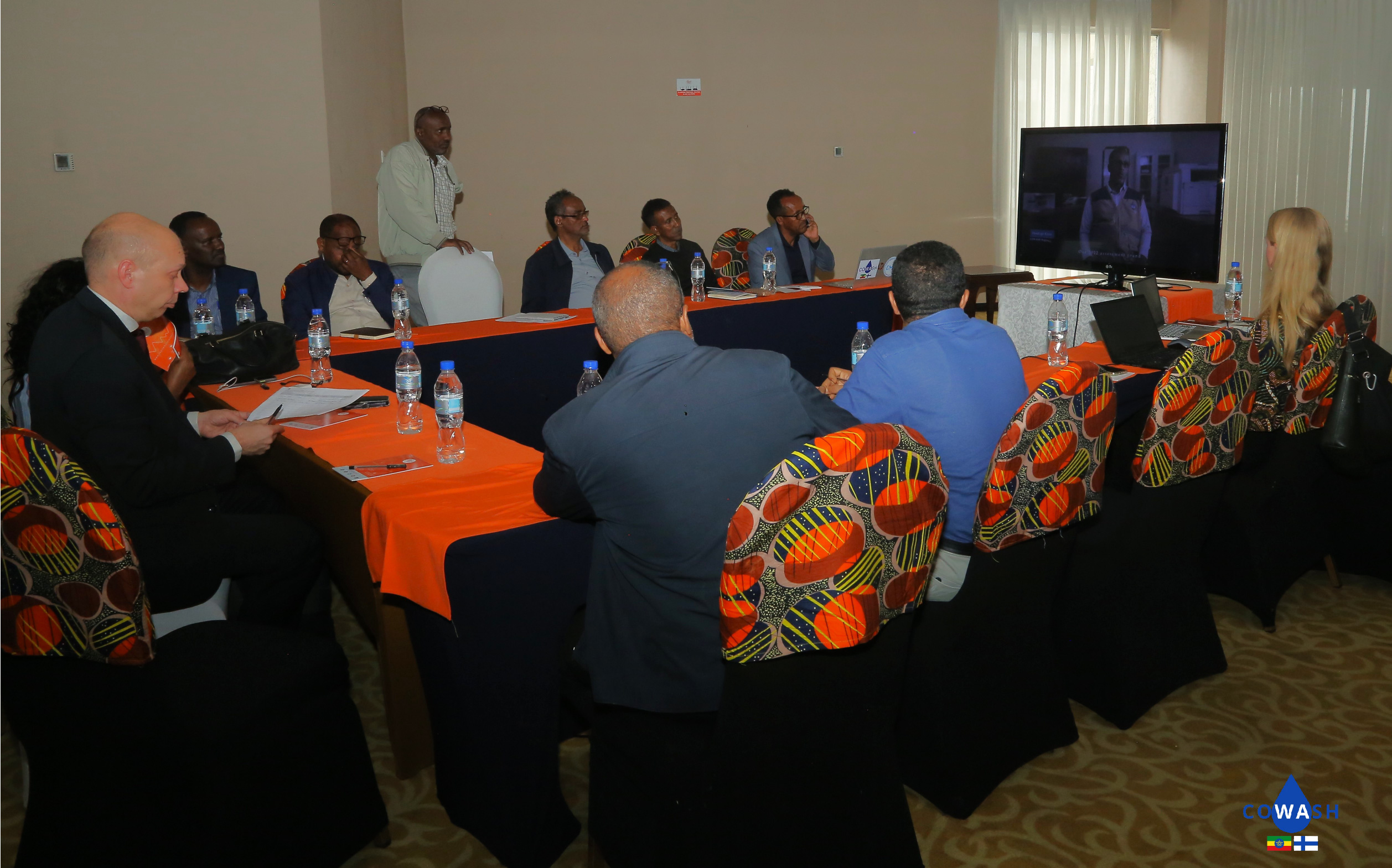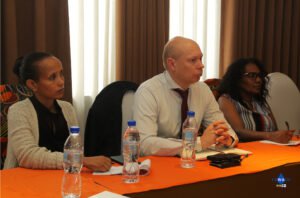COWASH IV National Steering Committee Concludes its final Meeting
The COWASH IV National Steering Committee successfully concluded its final meeting for Phase four yesterday, October 15, 2025, at the Capital Hotel. The committee reviewed the project’s significant progress, assessed key operational issues, and discussed the way forward.
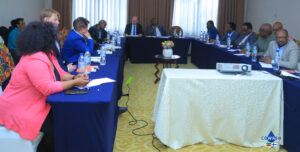 The committee meeting, which included representatives from the Ministry of Finance, Ministry of Water and Energy, Ministry of Education, Ministry of Health, and the Embassy of Finland, was co-chaired by Ambassador Asfaw Dingamo (PhD), State Minister of the Ministry of Water and Energy and Tomi Särkioja, Head of Cooperation at the Embassy of Finland.
The committee meeting, which included representatives from the Ministry of Finance, Ministry of Water and Energy, Ministry of Education, Ministry of Health, and the Embassy of Finland, was co-chaired by Ambassador Asfaw Dingamo (PhD), State Minister of the Ministry of Water and Energy and Tomi Särkioja, Head of Cooperation at the Embassy of Finland.
COWASH IV Chief Technical Advisor Neil Chadder presented project updates for the committee, including major works completed in the Ethiopian Fiscal Year 2017 (EFY 2017) and outlined plans for EFY 2018. Mr. Chadder also presented a general overview of the utilization of funding received from the Governments of Ethiopia and Finland. Following this, Assegid Teklu, COWASH IV Project Finance Coordinator at the Ministry of Finance, provided a detailed financial report specifically on the Government of Finland’s fund utilization in the project.
The committee held critical discussions on challenges, forward plans, and the official COWASH Phase V programme document, marking the final official review for Phase IV.
Key Achievements
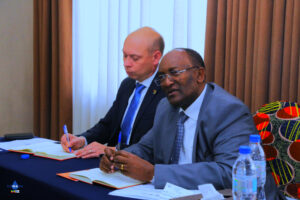 A major highlight of the meeting was the announcement that, with one year remaining, COWASH IV has already reached over 1 million beneficiaries (1,003,325) against its target of 1.1 million, as of the end of July. In EFY 2017 alone, the project delivered substantial infrastructure and capacity improvements, including the construction of 1,235 water points, directly benefiting 307,487 people. COWASH IV has also constructed water points in 160 schools and 112 health posts, improved latrines in 29 schools and 61 health posts and Menstrual Hygiene Management (MHM) centers in 31 schools. Furthermore, a critical focus on capacity building resulted in training provided to 14,068 individuals.
A major highlight of the meeting was the announcement that, with one year remaining, COWASH IV has already reached over 1 million beneficiaries (1,003,325) against its target of 1.1 million, as of the end of July. In EFY 2017 alone, the project delivered substantial infrastructure and capacity improvements, including the construction of 1,235 water points, directly benefiting 307,487 people. COWASH IV has also constructed water points in 160 schools and 112 health posts, improved latrines in 29 schools and 61 health posts and Menstrual Hygiene Management (MHM) centers in 31 schools. Furthermore, a critical focus on capacity building resulted in training provided to 14,068 individuals.
Since the beginning of Phase Four, the COWASH has also established 292 WASH saving and loan associations to foster financial independence for household latrine construction, and 26 market-based sanitation centers to provide accessible and affordable sanitation supplies to rural communities.
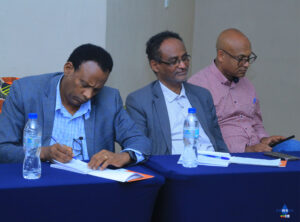 To strengthen its impact, COWASH IV launched community conversation flipcharts and started training volunteer community members who will facilitate community conversations in EFY 2017 aiming to reinforce its Social and Behavioral Change efforts. The project continues to raise awareness and engage actively with school staff, WASH and gender clubs, and local communities to drive positive long-term change in hygiene practices.
To strengthen its impact, COWASH IV launched community conversation flipcharts and started training volunteer community members who will facilitate community conversations in EFY 2017 aiming to reinforce its Social and Behavioral Change efforts. The project continues to raise awareness and engage actively with school staff, WASH and gender clubs, and local communities to drive positive long-term change in hygiene practices.
Overall, the final COWASH IV Steering Committee meeting successfully highlighted the project’s achievement and concluded the meeting by agreeing to move forward with the presented plan and the points discussed.
COWASH Kicks Off Training for Volunteer Community Conversation Facilitators
The COWASH IV team is currently conducting a training program across seven project regions for volunteer Community Conversation Facilitators from local communities. This initiative is a major step forward in our efforts to bring positive behavioral change in sanitation and hygiene.
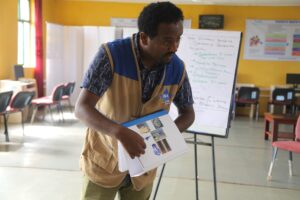 The training program, which launched on September 16, 2025, in Gumaye, Jimma Zone, is designed to build the capacity of local volunteers and Woreda experts, including WASH savings and loan association (SLA) members and health extension workers. It aims to equip them with the skills to lead and facilitate effective, weekly or bi-weekly community conversations. To guide these interactive sessions, the COWASH IV team has developed a specially designed flip chart, now available in four local languages.
The training program, which launched on September 16, 2025, in Gumaye, Jimma Zone, is designed to build the capacity of local volunteers and Woreda experts, including WASH savings and loan association (SLA) members and health extension workers. It aims to equip them with the skills to lead and facilitate effective, weekly or bi-weekly community conversations. To guide these interactive sessions, the COWASH IV team has developed a specially designed flip chart, now available in four local languages.
Since its launch, the COWASH IV team has successfully conducted training in five Woredas in the Oromia and Sidama Regions. The team will continue this training in 18 additional Woredas in the coming weeks. A total of 230 volunteers will participate, and 92 community conversation groups will be formed to discuss crucial topics over eight consecutive sessions.
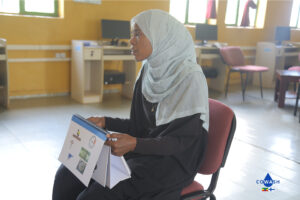 These flip charts will guide discussions on essential topics including building and using improved latrines, alternative latrine products, hand washing, safe water handling and storage, menstrual health and hygiene, and gender and disability inclusion in WASH.
These flip charts will guide discussions on essential topics including building and using improved latrines, alternative latrine products, hand washing, safe water handling and storage, menstrual health and hygiene, and gender and disability inclusion in WASH.
This training program aims to foster in-depth, locally-led discussions that will lead to lasting behavior change. Halima Nasser, a WASH SLA member from Kersa Woreda in the Oromia region, shared that the training has significantly built her capacity, providing her with critical knowledge that she is now eager to share with her community. She emphasized that beyond providing the necessary information, the programme built her confidence and gave her the skills to deliver the training effectively.
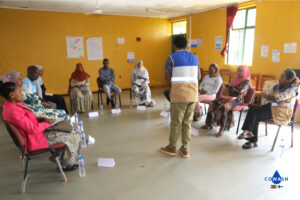 Abdulbasit Jemal, another trainee from Kersa Woreda, shared his enthusiasm, saying the training program is critical for both the trainees and the community. While his SLA group had already started social and behavioral change work, he noted that they were limited and lacked this kind of knowledge. He confirmed that with their gained skills, they will actively work to bring about change in their community.
Abdulbasit Jemal, another trainee from Kersa Woreda, shared his enthusiasm, saying the training program is critical for both the trainees and the community. While his SLA group had already started social and behavioral change work, he noted that they were limited and lacked this kind of knowledge. He confirmed that with their gained skills, they will actively work to bring about change in their community.
All participating volunteers were elected from the community based on the provided criteria for the Woredas. Ebsa Feyisa, Social and Behavioural Change specialist at COWASH IV, says success of the initial training is already evident applauding the volunteers for their active involvement and dedication to making a real difference in their communities.
Ending a 3km Trek: A Community's Journey to Safe Water Supply in Bale
For the community of Weltayi Kubsa Kebele in Bale Goba, daily life once included an exhausting 3-kilometer trek up a mountain to fetch water from the Hululicho Spring. Located at 10,000 feet above sea level, the journey to the spring is now a thing of the past.
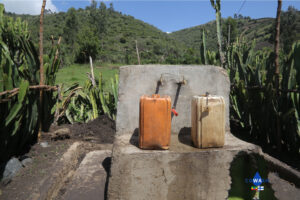 In May 2017, the Ethiopian Fiscal Year, COWASH IV constructed a 3km piped line from the spring to the village, bringing safe water supply directly to the community. The new system, which includes a spring capping structure, a reservoir and two community water points, provides a reliable water supply for 475 people from 97 households. This initiative is a vital step toward a healthier and more productive future for the community.
In May 2017, the Ethiopian Fiscal Year, COWASH IV constructed a 3km piped line from the spring to the village, bringing safe water supply directly to the community. The new system, which includes a spring capping structure, a reservoir and two community water points, provides a reliable water supply for 475 people from 97 households. This initiative is a vital step toward a healthier and more productive future for the community.
The Hululicho spring is also one of two pilot sites for the COWASH IV’s Green Legacy Initiative, which addresses climate and environmental risks. The program, which started in February 2025, complements the project’s Water Safety Planning efforts.
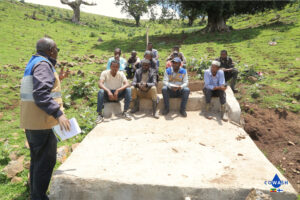 The COWASH IV team conducted a follow-up visit on August 12 and 13 to the Bale Goba and Dinsho Woredas to monitor the Green Legacy initiative’s progress. The team met with Woreda administrators, partner office heads and technical experts to discuss the initiative’s implementation and sustainability.
The COWASH IV team conducted a follow-up visit on August 12 and 13 to the Bale Goba and Dinsho Woredas to monitor the Green Legacy initiative’s progress. The team met with Woreda administrators, partner office heads and technical experts to discuss the initiative’s implementation and sustainability.
In both Woredas, land for tree planting had already been prepared. In Goba, the COWASH team helped transport around 1,000 trees prepared by the Office of Agriculture to the piloting site. The team, along with Woreda technical experts, visited the site in Weltayi Kubsa Kebele, at the upper Hululicho Spring, where the team provided on-the-job training to community members and WASH Committee members on the importance of integrating the Green Legacy Initiative with water supply efforts. The team also along with the WASHCO members planted indigenous trees just upstream of the spring source to help ensure the water’s sustainability for years to come.
Strengthening Sanitation Supply Chains to rural Ethiopia
Continuing its commitment to enhancing sanitation access and strengthening local business, COWASH IV is advancing its initiative to reinforce sanitation product supply chains in rural Ethiopia. This week marks a step with the ongoing transportation of 200 plastic toilet slabs from Addis Ababa to Market-based Sanitation Centers (MSCs) in Chirone and Selekelaka Woredas, located in Sidama and Tigray Regions, respectively. These supplies were purchased by the COWASH IV team on behalf of the MSCs at the end of last week (July 12, 2025).
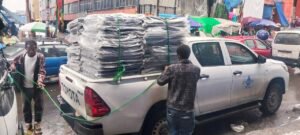 This latest distribution builds on COWASH IV’s approach to strengthening sustainable supply channels for MSCs, enabling them to thrive as viable businesses. Beyond initial setup and supportive supervision, COWASH IV’s comprehensive support empowers MSCs to provide accessible and affordably priced sanitation products to their customers, primarily COWASH IV water beneficiary households and WASH Saving and Loan Associations established by the project. This also helps them establish robust working relationships with suppliers for their future procurement needs, generate profits that contribute to long-term WASH business sustainability, and effectively promote sanitation products within communities, thereby expanding essential services and improving hygiene practices in rural areas.
This latest distribution builds on COWASH IV’s approach to strengthening sustainable supply channels for MSCs, enabling them to thrive as viable businesses. Beyond initial setup and supportive supervision, COWASH IV’s comprehensive support empowers MSCs to provide accessible and affordably priced sanitation products to their customers, primarily COWASH IV water beneficiary households and WASH Saving and Loan Associations established by the project. This also helps them establish robust working relationships with suppliers for their future procurement needs, generate profits that contribute to long-term WASH business sustainability, and effectively promote sanitation products within communities, thereby expanding essential services and improving hygiene practices in rural areas.
Building on Efforts to Restore Sanitation Product Supply Chains in Tigray
The current initiative extends COWASH IV’s work in restoring sanitation product supply chains in Tigray following the end of conflict in the region. In December 2024, COWASH IV facilitated the purchase and distribution of 100 medium plastic toilet slabs to MSCs in Degua Tembien and Endamekoni Woredas. In addition, the project team facilitated the purchase and distribution of 110 medium plastic toilet slabs to Endamekoni Woreda in February 2025.
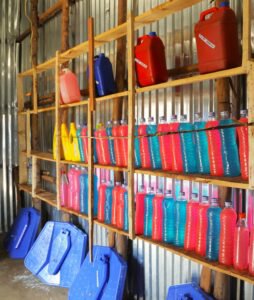 This earlier effort was crucial for strengthening supply chains, improving access to essential sanitation products for COWASH IV community water point beneficiary households and supporting the growth of local businesses by empowering MBSCs in a challenging environment.
This earlier effort was crucial for strengthening supply chains, improving access to essential sanitation products for COWASH IV community water point beneficiary households and supporting the growth of local businesses by empowering MBSCs in a challenging environment.
COWASH IV federal and regional teams were instrumental in connecting these MSCs with suppliers for improved toilet slabs in both the current and previous initiatives. The Project advocated for these MSCs to receive priority, considering their financial capacity and specific product interests, ensuring a smooth and equitable procurement process.
These continuous actions, from targeted support for MSCs to restoring and strengthening supply chain efforts, underscore COWASH IV’s commitment to ensuring sustainable and resilient sanitation access for rural Ethiopia, fostering lasting change and healthier communities.
Empowering Communities with Sustainable Sanitation: Highlights from COWASH IV's Recent OJT
From June 23 to July 3, 2025 COWASH IV team conducted On-the-Job Training (OJT) programmes focusing on WASH Saving and Loan Associations (SLAs) and Household Sanitation across five woredas in South Ethiopia and South-west Ethiopia Peoples Regions.
COWASH IV team observed established SLAs, discussing their saving and loan meetings, progress in improved latrine construction, sanitation promotion and connections with plastic toilet slab suppliers. This direct engagement led to co-designing actionable plans with households to accelerate latrine construction, including clear cost breakdowns to facilitate saving.
Beyond promoting improved sanitation, COWASH team fostered motivation by sharing success stories and provided technical support on fund management to SLA committees. Crucially, the team also engaged with woreda government experts and supervisors, offering technical advice on advancing improved latrine construction and identifying local technology alternatives.
A total of 89 individuals, comprising woreda government experts and local households, participated in this OJT programmes. This initiative reinforces COWASH IV’s commitment to community-led, sustainable WASH solutions.
COWASH Hosts WASH Sector Dialogue and Documentary Screening in Addis Ababa
The Community-Led Accelerated WASH Phase Four (COWASH IV) project hosted a successful event on June 9, 2025, at the U.S. Embassy in Addis Ababa that brought together key stakeholders in Ethiopia’s Water, Sanitation, and Hygiene (WASH) sector. The engagement featured the screening of three selected documentaries from the project’s six-part series, “Transforming Lives, Empowering Communities,” followed by a panel discussion exploring challenges and opportunities in Ethiopia’s sanitation and hygiene sector.
 Professionals from different sectors attended the event including representatives from non-governmental organizations, researchers from Addis Ababa University, students and members of the private sector. The documentaries served as a powerful testament to the human impact of WASH initiatives, setting a compelling stage for the subsequent expert analysis.
Professionals from different sectors attended the event including representatives from non-governmental organizations, researchers from Addis Ababa University, students and members of the private sector. The documentaries served as a powerful testament to the human impact of WASH initiatives, setting a compelling stage for the subsequent expert analysis.
A panel of distinguished experts steered the conversation, which delved into the opportunities and challenges shaping the sector. The panel featured Waltaji Terfa KUTANE, a Senior Environmental Health Expert with the World Health Organization (WHO) in Ethiopia, bringing 25 years of public health expertise to the discussion. He was joined by Melaku Worku Befekadu, the WASH Programs Officer and Advocacy Coordinator for IRC WASH Ethiopia, who has over 16 years of experience in policy advocacy and rural WASH implementation. The third panelist was Neil Chadder, the Chief Technical Advisor at COWASH IV and a seasoned specialist with four decades of experience across 18 countries.
 The discussion focused on the most significant obstacles hindering progress in sanitation and hygiene across Ethiopia. The panelists examined the effectiveness of current policies and the institutional capacity for implementation, questioning whether existing frameworks are sufficiently enabling. They also explored socio-cultural and behavioral barriers to the adoption of sustainable hygiene practices and debated strategies for fostering genuine community leadership and ownership of WASH solutions.
The discussion focused on the most significant obstacles hindering progress in sanitation and hygiene across Ethiopia. The panelists examined the effectiveness of current policies and the institutional capacity for implementation, questioning whether existing frameworks are sufficiently enabling. They also explored socio-cultural and behavioral barriers to the adoption of sustainable hygiene practices and debated strategies for fostering genuine community leadership and ownership of WASH solutions.
A central theme of the dialogue was the power of local financial mechanisms, inspired by the documentary “Building with Savings: Community Ownership.” The conversation focused on how to best strengthen and scale up community-led financing and market-based sanitation centers. The goal, as discussed by the panel, is to create a supportive ecosystem that allows communities to independently drive, access, and maintain their own WASH improvements affordably, without creating dependency on external aid.
Reflecting on the profound socio-economic changes illustrated in the documentary “Beyond WASH: A Success Story,” the panel also explored the significant, and often unmeasured, indirect benefits that reliable WASH access can unlock. The event concluded with a consensus on that community ownership and innovative local solutions are key to moving the WASH sector forward. The active participation from sector professionals led to a fruitful exchange, with many important points raised about the way forward.
COWASH IV Regional Committees Conclude Annual Review and Planning Meetings
The COWASH IV project’s regional steering committees across seven project regions have successfully completed their Progress Review and Annual Plan meetings for the 2018 Ethiopian Fiscal Year (EFY). Held throughout May, 2025 these meetings evaluated project performance during EFY 2017 and approved regional core plans for EFY 2018.
Key stakeholders including representatives from the Embassy of Finland, Regional Bureaus of Education, Finance, Health, Water and Energy, and Women and Children Affairs as well as COWASH IV Federal Technical Assistance Team and Regional Support Units participated in these meetings.
This series of regional meetings followed the project’s annual core planning meeting held in April. Central Ethiopia hosted the first session, with subsequent meetings conducted in South Ethiopia, Sidama, Tigray, Oromia, Benishangul Gumuz and South-West Ethiopia People’s Region. The Amhara regional steering committee will finalize it meeting at the beginning of June, 2025.
